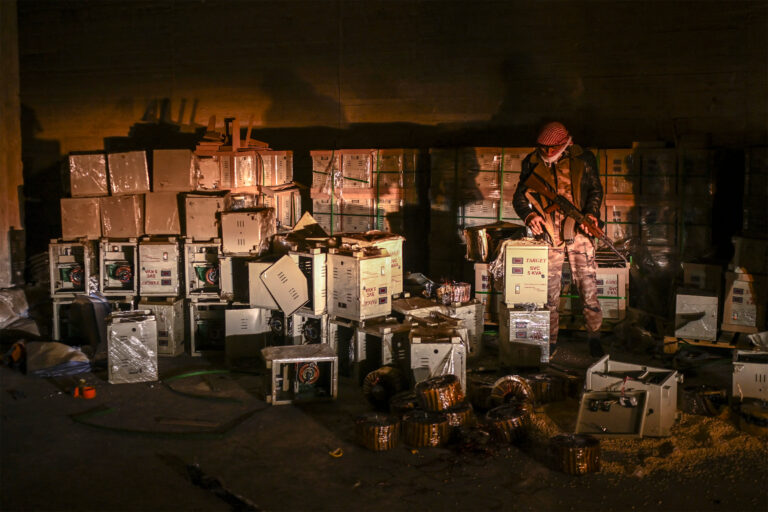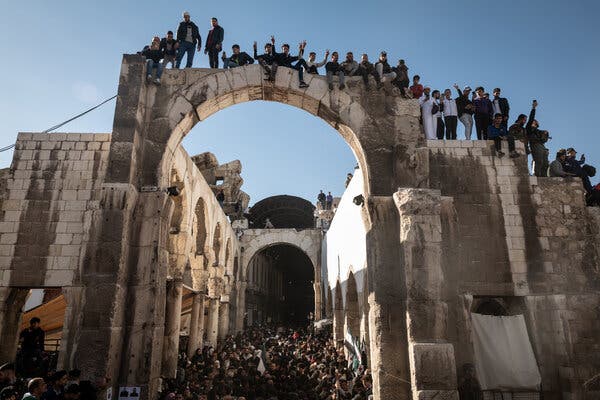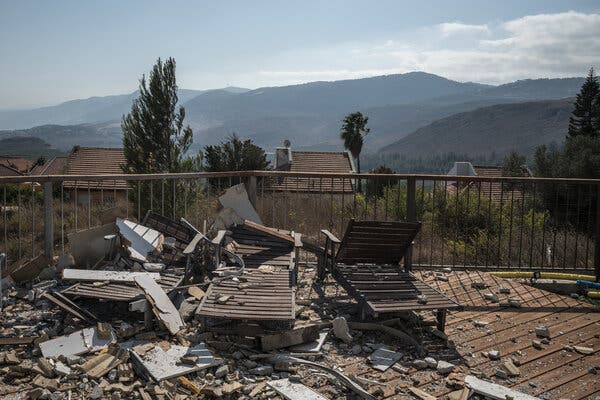The cabinet was expected to authorize Prime Minister Benjamin Netanyahu and Yoav Gallant, the defense minister, to initiate a retaliatory attack at their discretion, officials said.

Israel’s security cabinet was set to convene on Thursday night, officials said, to discuss Israel’s response to an Iranian barrage of some 200 ballistic missiles that sent nearly the entire country into reinforced shelters last week.
Senior ministers, including Prime Minister Benjamin Netanyahu, will discuss the overall plan for Israel’s retaliation, said two officials who spoke on condition of anonymity because of the sensitivity of the discussions.
The cabinet was expected to authorize Mr. Netanyahu and Yoav Gallant, the defense minister, to initiate the response at their discretion, the officials said.
Mr. Gallant posted a video on Wednesday saying that Israel’s attack against Iran would be “deadly, precise and, above all, surprising.” He added: “They will not understand what happened and how it happened. They will see the results.”
Iran’s attack earlier this month came in retaliation for Israel’s killing of top leaders in Iran’s Islamic Revolutionary Guards Corps, as well as Hamas and Hezbollah, both Iran-backed armed groups. One leader, Ismail Haniyeh, Hamas’s political chief, was assassinated while staying in a state guesthouse in Tehran in July.
Most of the missiles were intercepted by Israel’s Iron Dome defense system, but a Palestinian man was killed in the Israeli-occupied West Bank when a fragment of an Iranian missile fell on him. Two Israeli air bases also sustained light damage, according to the Israeli military.
International mediators and the Biden administration are concerned that a huge Israeli strike could touch off a wider conflict between Israel and Iran. The regional archnemeses’ decades-long shadow war escalated into direct action in April, after Israel struck an Iranian embassy complex in the Syrian capital, Damascus, killing at least three senior commanders in the Revolutionary Guards.
In response, Iran launched hundreds of missiles and drones at Israeli territory, almost all of which were intercepted by Israel, the United States and allies across the region. Israel retaliated with a strike that damaged an S-300 antiaircraft system near Natanz, a city in central Iran critical to the country’s nuclear weapons program.
Israeli officials have suggested that the coming retaliation for the missile barrage will be more severe. But analysts still say neither side appears interested in all-out war.
Aaron Boxerman is a Times reporting fellow with a focus on international news. More about Aaron Boxerman
See more on: Israel-Hamas War News, Hezbollah



